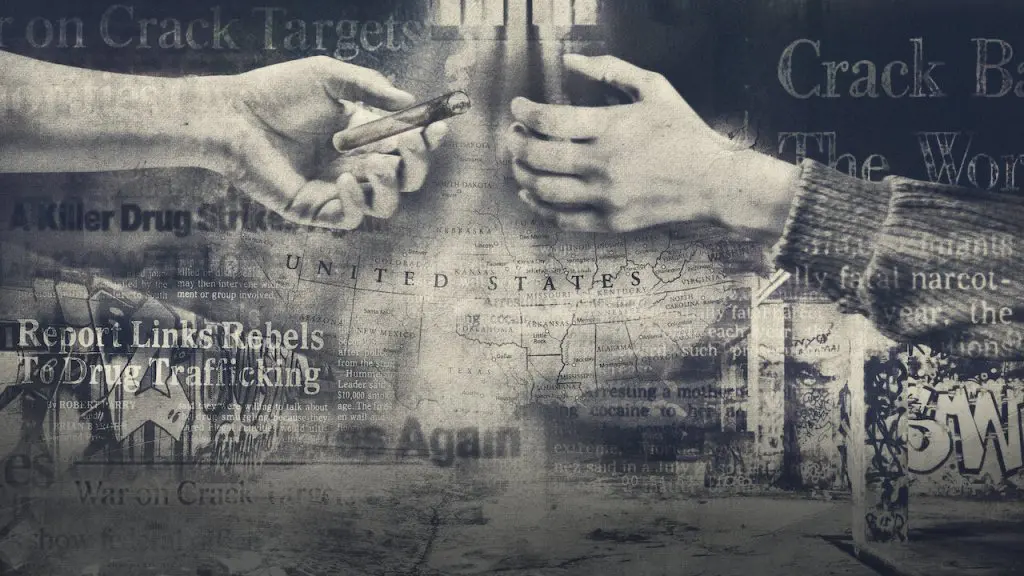Summary
With the benefit of hindsight and awareness of the devastation the crack epidemic wrought, Crack: Cocaine, Corruption & Conspiracy proves an eye-opening, accusatory documentary.
Crack: Cocaine, Corruption & Conspiracy debuted on Netflix on January 11, 2021.
With all the talk of pandemics these days, it’s easy to forget about the humble epidemic, the spread of an infectious disease that devastates not the entire world but specific communities. In the 1980s, the disease was crack, and it ran rampant through America’s inner cities, given a fearsome reputation by media scaremongering and politically-motived framing that suggested, with all the racist undertones you’d expect, that the U.S. was on the cusp of invasion by superpowered “crack babies” and their strung-out, obviously evil parents, almost all of whom – contrary to, you know, statistics – were Black.
Stanley Nelson’s Crack: Cocaine, Corruption & Conspiracy, which arrived on Netflix today (and is in not-so-esteemed company), is less interested in regurgitating the stark imagery of the era to a new, more socially aware audience than it is in using the benefit of hindsight to unpack how the demotion of cocaine from an elitist rich-boys hobby project to a mass-market product available on every street corner was less a disease and more a weapon deployed by the government and media against the very communities it was already ravaging. It’s a stark piece of work, make no mistake, but it speaks to a reality of manipulation, exploitation, and racial bias that was no secret before and has persisted more insidiously ever since; to a culture irrevocably altered.
Through testimony from dealers and users all the way to analysis from neuroscientists, and from the street-level appeal to Hollywood glamorization, Nelson’s documentary leaps back and forth through perspectives and history to chart not just the appeal of cocaine’s high but the democratization of it, the unavoidable link between an anesthetic – even a temporary one – and the oppression and poverty that causes the most pain. Crack would have ravaged impoverished inner-city communities even if it weren’t being supported by rackets and a flagrantly racist political campaign that insisted one could just say no despite making consistent efforts to take any choice in the matter away.
Just like that, or at least over the course of three successive Presidential administrations, drug users were demonized over the drug itself, prison populations exploded, and the age-old fallacy of combatting chemical addiction by employing draconian punishments was once again proven ridiculous. Punters queued bumper-to-bumper through neighborhood warzones enthusiastically patrolled by a newly-militarized police force emboldened by corrupt legislation and federal dollars. Crack: Cocaine, Corruption & Conspiracy is a scathing indictment of a hypocritical government and a morbid reminder of how the people and systems whose job is ostensibly to protect us couldn’t actually care any less about us.




